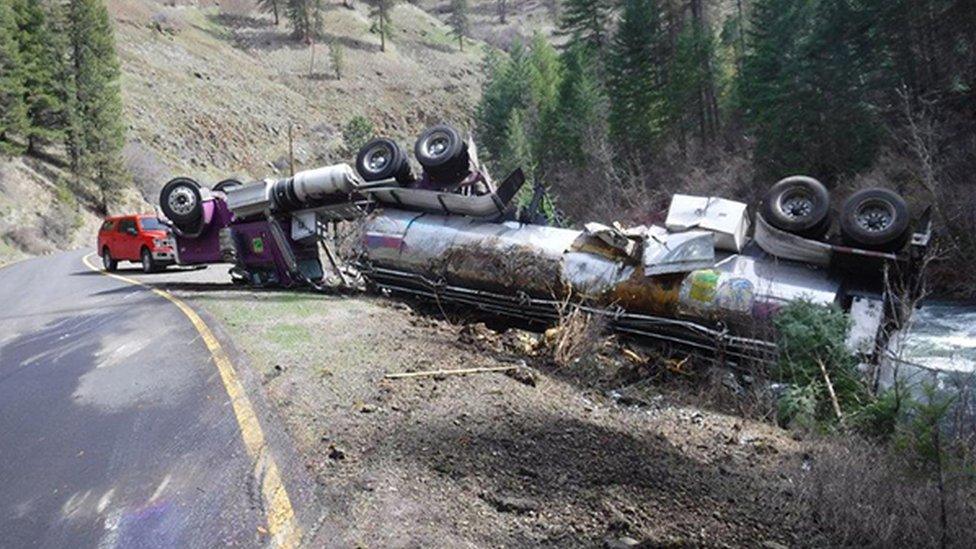Truck crash spills live salmon into wrong Oregon river
- Published

A truck carrying 102,000 live salmon in the US state of Oregon crashed last week on a creek bed, inadvertently releasing thousands of the juvenile fish into the water.
The young Chinook, also known as King, salmon were being taken from the Lookingglass Hatchery in the state's north, to the Imnaha River, where they are listed as threatened.
But the crash caused some 77,000 fish to splash into the Lookingglass Creek, boosting the population of that waterway instead.
Wildlife officials said on Tuesday that the driver lost control around a tight turn, causing the fish tanker to roll down a rocky embankment. The driver sustained minor injuries, Oregon Department of Fish and Wildlife (ODFW) .
The crash happened on a tight corner on 29 March, the statement says, with the 53-ft (16m) truck "rolling onto the passenger side, skidding on its side on the pavement, and then going over a rocky embankment causing it to roll onto its roof".
While thousands of fish made it into the water, many more were left stranded on the bank
Over 25,000 of the salmon smolts - fish that are around two years old - died either inside the truck's tanker or on the creek bank.
The local sheriff's office responded to the crash, officials said. "Small amounts of diesel fuel were quickly contained," the release said, adding that there was no need for a hazardous material spill response.
The Nez Perce Tribe and the Confederated Tribes of the Umatilla Indian Reservation also responded and helped by collecting and scanning transponders on the dead fish.
Salmon are anadromous, meaning they spend much of their lives in the ocean but return to freshwater rivers to spawn. Many are now raised in government-run hatcheries before being released back into their native waters to later return to those same hatcheries.
ODFW officials say the loss represents about 20% of the fish it intended to release into the Imnaha River this year.
They expect that around 500-900 fewer adult fish will return to spawn in 2026-2027 due to the loss.
The 77,000 smolts in the Lookingglass Creek will likely lead to around 350-700 additional adults returning there.
"We are thankful the ODFW employee driving the truck was not seriously injured," said ODFW fish hatchery coordinator Andrew Gibbs.
"This should not impact our ability to collect future brood stock or maintain full production goals in the future."